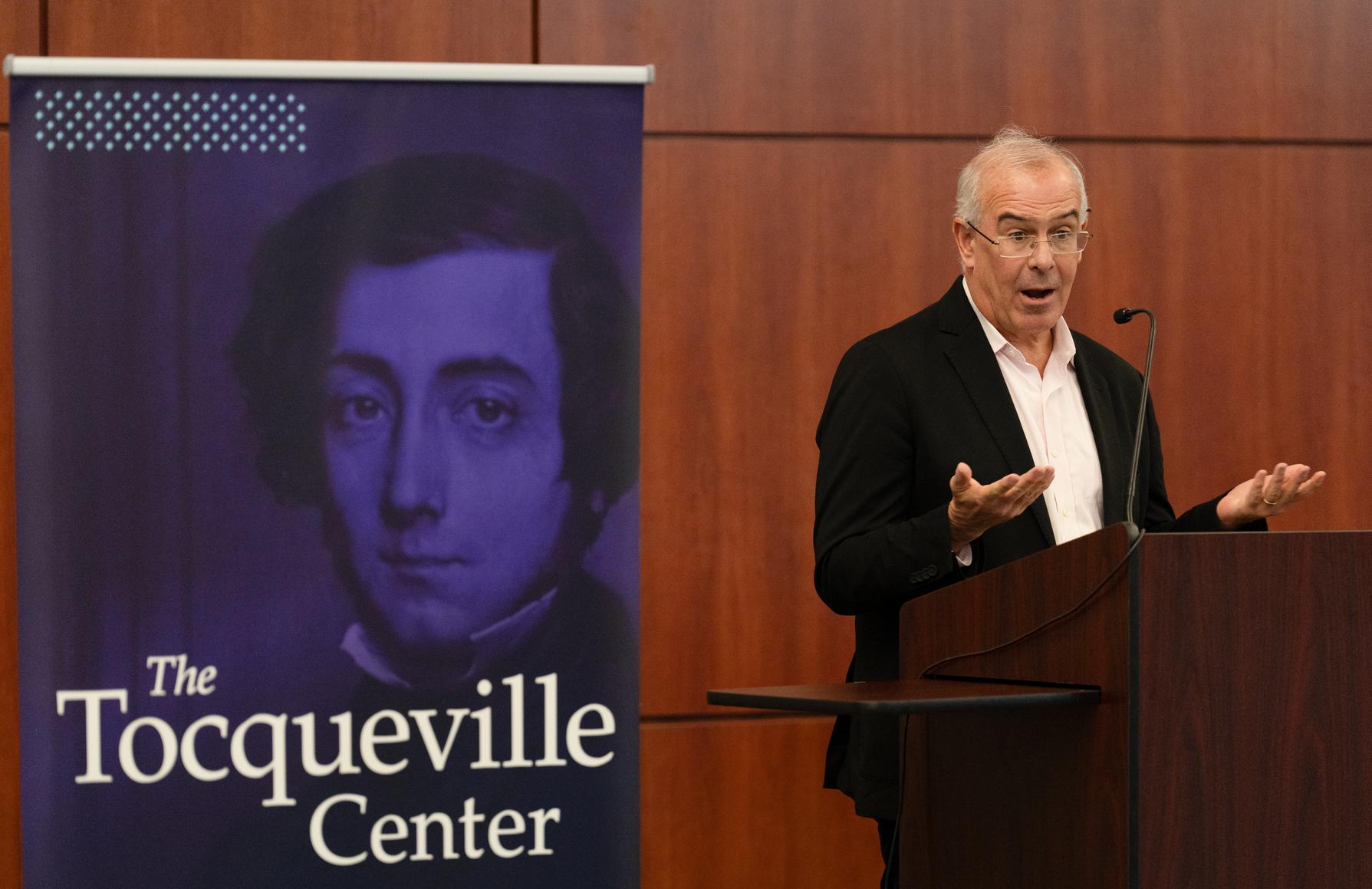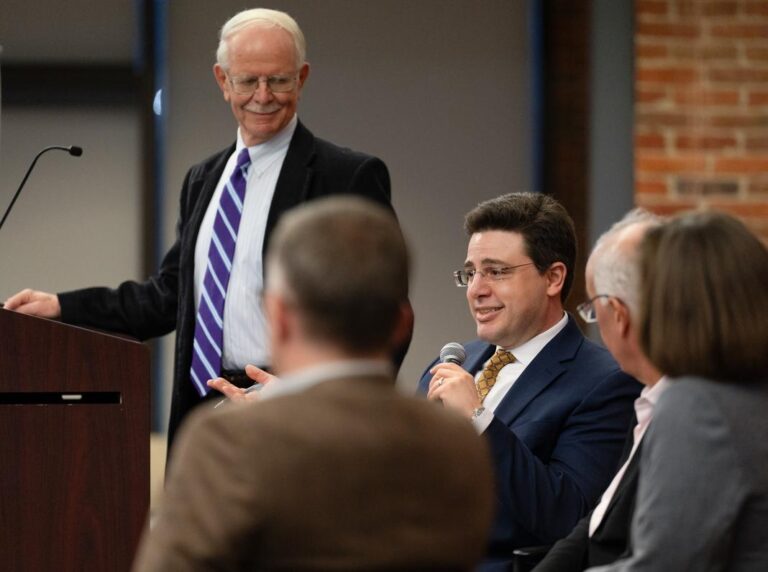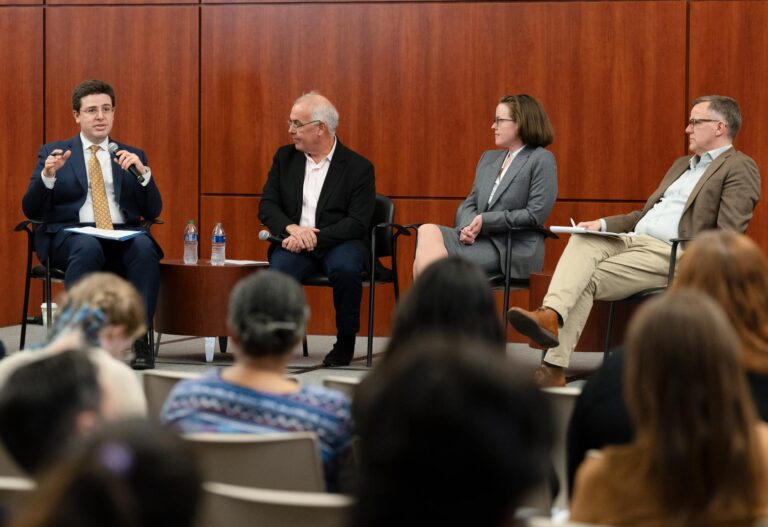Thought leaders describe “Conservatism in America” in Tocqueville Center program

David Brooks, the longtime conservative columnist for The New York Times and other publications, explained to a crowd in the Trone Student Center of Furman University’s campus, how he has come to support Democrats.
Brooks joined Helen Andrews, a senior editor at The American Conservative; Matthew Continetti, director of domestic policy studies at the Patrick and Charlene Neal Chair in American Prosperity at the American Enterprise Institute; and Matthew T. Martens, a trial lawyer who once clerked for Chief Justice William Rehnquist and author of Reforming Criminal Justice: A Christian Proposal.
Together, the four conservative intellectuals presented “Conservatism in America,” a program sponsored by Furman’s Tocqueville Center for the Study of Democracy and Society. Andrews and Martens spoke the night of Tuesday, Feb. 27, Brooks and Continetti spoke the next night. Each night the presentations were followed by a question-and-answer discussion with all four presenters.

Jim Guth, the William R. Kenan Professor of Politics and International Affairs, moderates a panel discussion with Matthew Continetti, David Brooks, Helen Andrews and Matthew Martens.
You can watch videos of both events at the bottom of this website.
“The program was designed to exhibit the full range and great variety of American conservative thought, exemplified by four prominent public intellectuals,” said Jim Guth, the William R. Kenan Jr. Professor of Politics and International Affairs and a distinguished scholar for the Tocqueville Center. (Guth stepped in to run the event when the director of the Tocqueville Center, Brent Nelsen, the Jane Fishburne Hipp Professor of Politics and International Affairs, was invited to the inauguration of Finland’s president, Alex Stubb ’93 H’17.)
“The presentations certainly accomplished that purpose and more, revealing many of the deep contemporary fissures in what is sometimes called the American ‘conservative movement’,” Guth said.
Brooks, the highest-profile conservative intellectual at the event, with regular appearances on PBS NewsHour and NPR’s All Things Considered, covered a lot of ground in describing his early affiliation with conservatives. William F. Buckley was an early mentor. In the 1980s, Brooks said, the United States needed the conservatism of President Ronald Reagan when the country’s problem was “sclerosis.”
He grew to see, though, that some of Buckley’s ideas were problematic. He said the conservative’s arguments in the 1965 debate with author and intellectual James Baldwin “is pretty disgraceful. The seeds were there,” he said.

From left to right, Matthew Continetti, David Brooks, Helen Andrews and Matthew Martens participate in a panel discussion The Tocqueville Center’s “Conservative in America”.
In the 1980s, conservatives was “betrayed by libertarianism,” Brooks said.
“In my own view, what we call conservatism today, the populism of Donald Trump, is nearly the opposite of conservatism. How did a movement that built itself on sympathy and wisdom lead to a man who in my view possesses neither? How did a movement that put such importance on the moral formation of the individual end up nominating a man who is an unashamed amoralist?”
The biggest problem facing America today is fragmentation, Brooks said. “We need somebody in government who can take money and give it to the high school educated people who have been left behind. And in my view Joe Biden’s done a pretty good job of that.”
Brooks said he’s supporting Democrats despite some qualms with the party, but he’ll be “the most rightward Democrat possible.”